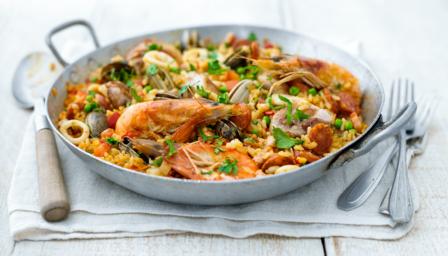Pregnancy – Dos and Don’ts For a Healthy Diet! How to Improve Your Diet Right Now
 Many women today are health-conscious, but very few follow what could be considered a healthy diet. Fortunately, pregnancy can be an opportunity for change.
Many women today are health-conscious, but very few follow what could be considered a healthy diet. Fortunately, pregnancy can be an opportunity for change.
With the incentive of giving their children a healthy start in life, many women make considerable changes in their diet while pregnant. If you use the opportunity of your intended pregnancy to really make an effort to eat better, you could help change your habits in the long term and ultimately improve your health.
I encourage you to pay more attention to what you eat day to day and to begin to make these simple changes:Eat more:
Whole grains. These include bread, pasta, crackers, and other baked goods made with whole wheat flour or other whole-grain flour as the first ingredient, as well as brown rice and other grains such as barley, oats, millet, quinoa, and corn. They have more nutrients and promote a healthier metabolism than refined grains
Fruits and vegetables. Try to include these at every meal and snack. Include the iron-rich vegetables listed earlier and vitamin C-rich foods.
Low-fat, nutrient-rich protein sources. You will need to boost your protein intake slightly during pregnancy, and it’s good to get in the habit of choosing lean meats, low-fat or fat-free dairy products, and protein-rich plant foods such as beans, peas, tofu, nuts, and seeds.
Unsaturated fats. Unsaturated fats are not only good for your heart health, they are critical for your future baby’s development. Sources of healthy fats are plant oils such as canola and olive oil, nuts, seeds, soy, and fish. Omega-3 fatty acids, found in fish, omega-3-enriched eggs, some plant oils, and walnuts, may be particularly important for fetal development. Choose lower-mercury fish such as chunk light tuna (not white albacore), shrimp, salmon, pollack, or catfish. Chapter 5 has more information on the mercury content of fish.
Cut back on:
Refined grains. Most baked goods, crackers, and other snack foods, as well as mealtime staples such as pasta and white rice, are made from refined grains, which lack the protein, fiber, and vitamins and minerals of whole grains. They can put stress on your metabolism by causing blood sugar levels to swing wildly.
Saturated fats. These fats are found in animal products such as meat and dairy, and they can have a negative effect on your long-term health by raising your cholesterol levels and your risk of heart disease. Choose lean meats and low-fat or fat free dairy products to cut back on these fats.
Trans fats. These are fats found in margarine and many processed foods. They help to promote high cholesterol levels, which can lead to clogged arteries and a higher risk of heart disease. Furthermore, these processed fats are not needed by your baby’s body and should be avoided during pregnancy. Avoid products that have hydrogenated or partially hydrogenated oils, which are trans fats.
Sweetened beverages. Sodas and other sweetened beverages are a primary source of added sweeteners in our diets, and they have little or no nutritional value. Get out of the habit of drinking any sweetened beverages; reach for water or more nutritious drinks such as whole fruit juice and skim milk.
Other added sugars. Baked goods, sweets, and many processed foods contain added sweeteners that cram calories into the diet without bringing needed nutrients with them. They can also have a roller-coaster effect on your blood sugar levels, which becomes a concern when hormonal changes in pregnancy put you at risk of gestational diabetes.








